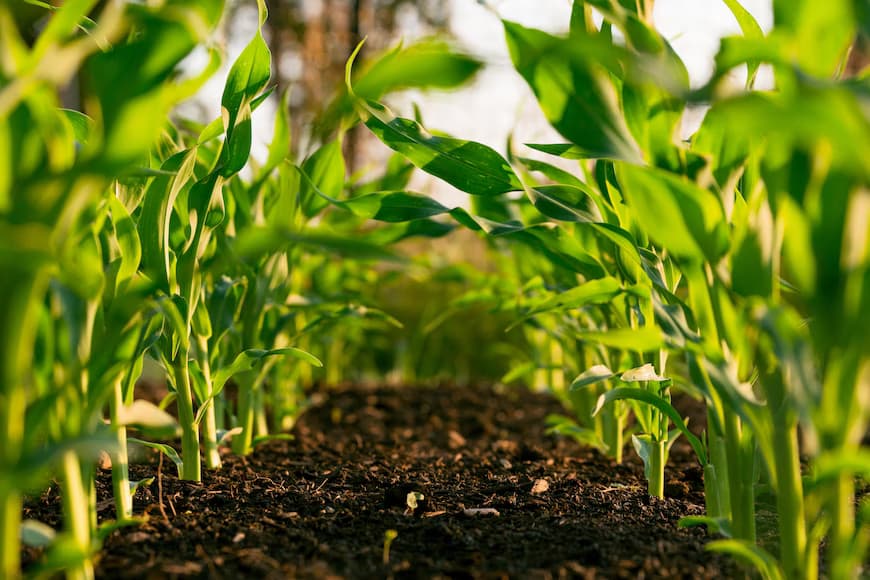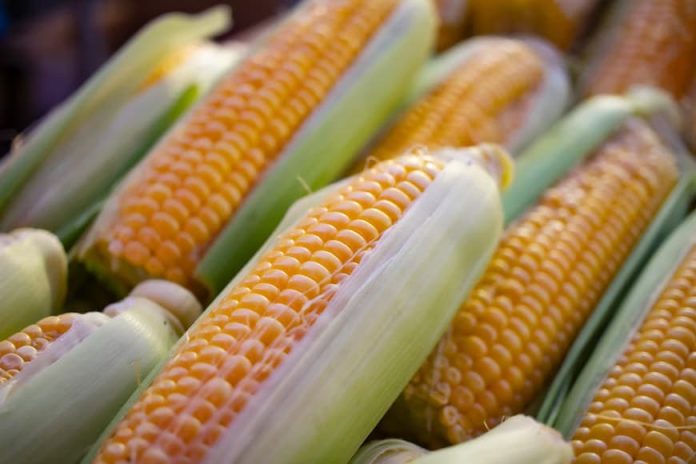For centuries, corn has been a staple worldwide and an important source of nutrition. It’s packed with essential vitamins, minerals, and antioxidants, and as a complex carbohydrate, it sustains energy levels throughout the day.
Corn is an excellent source of things your body needs to function well, including:
- Vitamin B6
- Folate
- Niacin
- Magnesium
- Phosphorus
- Iron
- Antioxidants
- Lutein
- Fibre
Learn more about the health benefits of corn–some may surprise you!
Table of Contents
1. Regulates Metabolism and Produces Energy – Vitamin B6
Vitamin B6 regulates metabolism and plays an important role in energy production. It’s also necessary for:
- Forming red blood cells
- Keeping nerve cells healthy
- Supporting immune system function
- Lowering the risk of cardiovascular disease, cancer, and inflammatory conditions
- Helping cognitive development in children
2. Supports Healthy Brain Development – Folate
Folate forms new cells and is essential for proper brain development, especially during the early stages of pregnancy. It’s also important for:
- Assisting in gene expression, which may reduce the risks of certain types of cancers
- Improving cardiovascular health by reducing levels of homocysteine in the blood
- Supporting energy production and metabolism
3. Supports Hair, Skin, and Nail Health – Niacin
Niacin converts food into energy and is important for healthy skin, hair and nails. It’s also essential for:
- Reducing the risk of Alzheimer’s disease
- Lowering cholesterol levels by preventing plaque build-up in the arteries
- Regulating blood sugar levels and reducing the risk of type 2 diabetes
4. Keeps Bones and Teeth Strong – Magnesium
Magnesium is an essential mineral that helps keep bones and teeth strong. It also plays an important role in:
- Regulating muscle and nerve functions
- Controlling blood sugar levels
- Producing energy
- Reducing fatigue and exhaustion
- Lowering the risk of stroke, heart disease, type 2 diabetes, and hypertension
- Supporting healthy immune system function
5. Strengthens Bones and Teeth – Phosphorus
Phosphorus helps to strengthen bones and teeth and is essential for proper muscle function. It’s also critical for:
- Producing energy
- Repairing and growing cells
- Synthesizing DNA
- Regulating blood pressure levels
- Reducing the risk of kidney stones
- Improving nervous system functions
6. Supports Energy Levels – Iron
Iron is an essential mineral that plays an important role in energy production, oxygen transport, and immune system support. It’s also important for:
- Forming red blood cells
- Reducing fatigue, exhaustion, and anemia
- Improving cognitive function and concentration levels
- Growing muscles and repairing tissue
7. Protects Against Disease – Antioxidants
The antioxidants in corn protect against a number of diseases, including heart disease, cancer, and diabetes. They’re also crucial for:
- Reducing inflammation and damage
- Boosting immunity
- Preventing premature aging
- Potentially protecting against neurological diseases like Alzheimer’s and Parkinson’s
8. Improves Eye Health – Lutein
Lutein is a carotenoid that’s found in the human eye, similar to vitamin A. Scientists believe that it helps to filter light, protecting eye tissues from UV damage. Corn contains high amounts of lutein. Some other foods that are rich in this chemical include egg yolks, spinach, grapes, zucchini, squash, orange pepper, and kale. The benefits of taking it include:
- Lutein is known to prevent age-related macular disease, one of the leading causes of blindness.
- The chemical can be used to counter inflammation, a leading cause of disease. Diabetes, cancer, and Alzheimer’s are all caused by inflammation.
- It is also a powerful antioxidant.
9. Regulates Blood Sugar – Fiber
Fiber is something everybody can benefit from getting more of. It is an essential carbohydrate. The body cannot digest fiber, which means it doesn’t cause people’s blood sugar to spike after consumption. It still delivers lots of antioxidants, vitamins, and nutrients in spite of this.
Studies show fiber helps to regulate how the body processes and uses sugars, keeping your hunger and blood sugar balanced. On average, adults need between 25 to 35 grams a day. Unfortunately, the vast majority of people get less than 15 grams. Corn is high in fiber. Eating more if it will mean that you get to enjoy the following benefits:
- Fiber reduces your risk of heart disease, stroke, and type-2 diabetes.
- It can help you to feel fuller, aiding weight loss.
- A diet high in fiber can reduce and prevent constipation.

Eating More Corn
Experts note that those interested in increasing their corn intake should specifically look for corn grown by farmers who have adopted sustainable practices. Unsustainable farming damages the environment, wastes valuable resources, and costs more money.
Corn is a versatile ingredient. It can be used in many different dishes, as a side, main, and even dessert. Some good ways of adding corn to your diet include:
- Adding corn to soups can be an effective way of incorporating more of it into your diet. Corn can enhance your soup’s nutritional profile. Corn imparts a sweet flavor to the dishes that it’s added to. It compliments chicken, beef, and fish soups.
- Using corn as an ingredient in your salads can be another effective way of adding it to your diet. The more you add to your salads, the more nutritional and flavorsome they will become.
- You can use corn to bake bread. Cornbread is a staple dish in many American states, predominantly in the south. You can also use it to make muffins, called corn muffins.
- Corn on the cob is a delicious accompaniment to virtually anything. As corn can be very filling, it’s best to only use half-cobs as side dishes, otherwise, you could end up being put off of your main meal.
- Satni is a traditional Bengali dish. It translates to chutney in English, however, the Bengali satni is nothing like the jarred chutneys you will come across in your local supermarket. Making corn satnis is a unique and enjoyable way of eating more corn and trying different cuisines.
As mentioned in the introduction to this post, corn is a staple food in the diets of people from all around the world. It is nutritional, delicious, and very affordable. Incorporating more of it into your diet will mean that you get to enjoy the health benefits outlined here.




